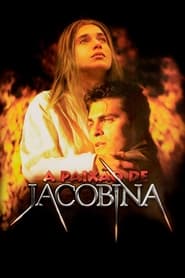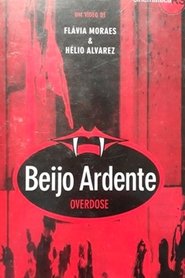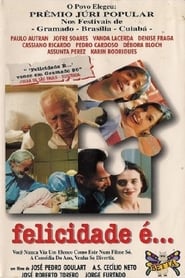detail profile ant c3 b4nio carlos falc c3 a3o
Peran Yang Di Mainkan Antônio Carlos Falcão
 A film director faces a complex...
A film director faces a complex...The City of Pirates 2018
A film director faces a complex situation in the production of his new film: Laerte, the protagonist of the story, begins to renegade her former characters, the Pirates of the Tietê. Lost in this situation and determined to be faithful to his whims after seeing the approach of death, the director decides to tell his drama mixing his persona with the story, creating a chaotic labyrinth between fiction and real life.
 Written in 1625 by the British playwright...
Written in 1625 by the British playwright...The Staple of News 2014
Written in 1625 by the British playwright Ben Jonson, the play “The Staple of News” provides a historic root for this discussion about the role of the press in modern day Brazil. Journalists of several generations discuss the dilemmas of the selection and focus of their subjects, the resistance of the media in accepting itself as a political agent, the inevitability of interpretation as there are no hard facts in nature, and above all the search for an always complex balance between credibility and the public’s growing demand for news.
 Picucha may seem oldfashioned but she...
Picucha may seem oldfashioned but she...Sweet Mother 2012
Picucha may seem old-fashioned, but she has modern ideas and a great sense of humor. As the matriarch of a big family, she is involved in the daily lives of her children, grandchildren and other relatives. Undeterred by the typical problems of old age, she uses her many years of experience to solve problems in the best way possible.
 Experience an adventure of counterculture psychedelia...
Experience an adventure of counterculture psychedelia...Wood & Stock: Sex, Oregano and Rock'n'Roll 2006
Experience an adventure of counterculture, psychedelia, and an abundance of peace and love with Angeli’s beloved comic characters, the hippies Wood & Stock. As the euphoria of the 1970s fades, it's time to focus on family and work. However, a new rock band might just rekindle the spirit of those iconic years.
 A coming of age dramatic comedy...
A coming of age dramatic comedy...Two Summers 2002
A coming of age dramatic comedy dealing with the effect that two "summers" have on the lives of several teenagers. The main story involves an innocent teenage boy and a conniving teenage girl who meet on a beach one summer in Southern Brazil. They meet up again the following summer
 In the mid1870s Jacobina daughter...
In the mid1870s Jacobina daughter...A Paixão de Jacobina 2002
In the mid-1870s, Jacobina, daughter of German immigrants, became leader of a sect that believed in healing the body by cleansing the soul. After having a divine vision and speaking to Jesus, she changes her appearance and manners, disturbing the conservative population of the place. After the death of opponents of her sect, local authorities decide to take action against her and her followers.
 Based on a story by the...
Based on a story by the...Sergeant Garcia 2000
Based on a story by the same name by Caio Fernando Abreu, it tells the encounter of a young man and a sergeant in the 1970s.
 Hilrio Pestana the most famous funniest...
Hilrio Pestana the most famous funniest...Um Homem Sério 1996
Hilário Pestana, the most famous, funniest and, ironically, saddest Brazilian actor, has died. He has passed through many stages of Brazilian cinema: the chanchadas, the Vera Cruz classics, the pornochanchadas, and even experimental movies. He was beloved by the public and had a gift for laughter, but he only desired to be a serious man.
 Canudos was a small village in...
Canudos was a small village in...A Matadeira 1994
Canudos was a small village in northeastern Brazil, founded by the messianic leader Antônio Conselheiro and massacred by a powerful army until the death of the last of its 30,000 inhabitants, on October 5, 1897. The film tells the story of the Canudos massacre from an English cannon, nicknamed by the backlands people "A Matadeira", which was transported by twenty teams of oxen through the backlands to fire a single shot.
 At the ruins of Gasometros power...
At the ruins of Gasometros power...Beijo Ardente – Overdose 1984
At the ruins of Gasometro’s power plant, in Porto Alegre, hides a vampire bored and distressed about his eternal life. Throughout the night, seeking for blood, he roams the streets looking for victims, until que falls in love with the architect that is restoring the power plant.

 Kelson is a young worker who...
Kelson is a young worker who... Sbornia is an island with a...
Sbornia is an island with a... Interned in an orkutian detox clinic...
Interned in an orkutian detox clinic... Two friends try to get to...
Two friends try to get to... Four directors tell stories related to...
Four directors tell stories related to... Mockumentary on a German moviemaker and...
Mockumentary on a German moviemaker and...